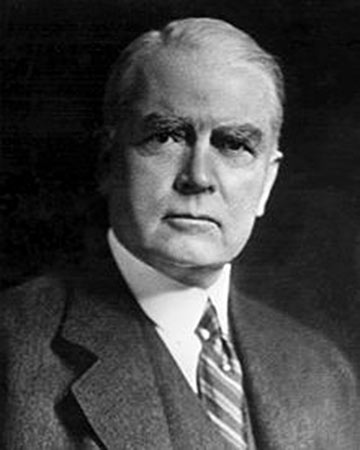All
Not Talk, But Power
By Dr. Chuck Hetzler
From cudayandnight.org

"First, we need to realize that the level of God's power in our lives can be greater than it is currently." Dr. Chuck Hetzler expands on this thought in a brief devotional posted Monday on Christian Union's new twice-daily video devotional site, Christian Union Day & Night...
Watch Now >
With Our Whole Heart, Soul, and Mind
by Justin MillsBut from there you will seek the Lord your God and you will find Him, if you search after Him with all your heart and with all your soul (Deuteronomy 4:29).
The Bible is full of such promises as this one in Deuteronomy 4:29, with a straightforward equation for intimacy with God. Unsurprisingly, these promises of seeking the Lord and finding Him include conditionality, such as the requirement that you seek after Him with all your heart and soul.
We know of God's holiness and the need, as the preacher says, to guard our steps when we go to the house of God (Ecclesiastes 5:1).
Columbia Sophomore Perseveres through Trials
by Catherine Elvy, Staff Writer A Columbia University undergraduate is sharing the lessons she gleaned from the trenches of extraordinary financial hardships to inspire participants in Christian Union's leadership development ministry on campus.
A Columbia University undergraduate is sharing the lessons she gleaned from the trenches of extraordinary financial hardships to inspire participants in Christian Union's leadership development ministry on campus.Migueyli Rivera '18 readily offers fellow students some of the spiritual and practical insights she gained as a strapped, often displaced teen in Lawrence, Massachusetts. "When I was going through homelessness, I really hung onto my faith," said Rivera.
Inter-Ministry Task Force Responds to Campus Tension
Editor's note: The following letter, reprinted from the Website www.loveforyale.com, was written by an inter-ministry task force at Yale in response to racial tension and protests on campus in the fall semester. The document was signed by over 100 Yale students and staff members from various ministries, including Athletes in Action, Living Water, Yale Christian Fellowship, Chi Alpha, Yale Graduate Christian Fellowship, Yale Faith and Action, Yale Students for Christ, Yale Gospel Choir, and United Church of Westville.
To Our Campus:
We are writing to you as a family of brothers and sisters in Christ. We have been deeply moved and affected by the pain experienced by many on our campus. We affirm that there is real, legitimate, and deep pain endured by communities of color here at Yale, not just as a result of recent events, but rather the result of lifelong experiences.
University Cites Program as Part of 150th Anniversary Celebration
By Catherine Elvy, Staff Writer As part of its sesquicentennial celebration, Cornell University recently spotlighted the institution's former training program for missionaries on furlough, including the course's ties to a global evangelist.
As part of its sesquicentennial celebration, Cornell University recently spotlighted the institution's former training program for missionaries on furlough, including the course's ties to a global evangelist.In November, the university's official newspaper paid tribute to the Cornell School for Missionaries, which operated from 1930 to 1964.
"Matt Bennett (Christian Union founder and CEO) contacted us and explained what Christian Union was doing. We felt a clear, immediate, strong call to become supporters," he said.
Dennis, Class of 1975, was an economics major at Princeton and a member of Cottage Club, one of the university's storied eating clubs.
Historian Notes Link between Prayer and Revival
by Catherine Elvy, Staff Writer
At their core, major manifestations from God involve prayer movements.
"Prayer movements have been fundamental to the advancement of Christ's kingdom as long as we can trace," says Bob Bakke, a church historian, author, and pastor.
"God is drawn to united prayer."
Historian Notes Link between Prayer and Revival
by Catherine Elvy, Staff Writer
At their core, major manifestations from God involve prayer movements.
"Prayer movements have been fundamental to the advancement of Christ's kingdom as long as we can trace," says Bob Bakke, a church historian, author, and pastor.
"God is drawn to united prayer."
Greetings from New York!
I’m not sure if you view this month in quite the same way as I do — a somewhat comical juxtaposition of the silliness/romantic celebration of Valentine's Day and the sobering start of the Lenten season when we consider the path of Christ as He approaches His crucifixion and resurrection. Certainly any serious celebration of the former would be rather empty without the tangible demonstration of the love of Christ shown for us in the latter.
 In a society that often values self-indulgence and entertainment over education and study, what should God’s workers do with the Word of Truth?
In a society that often values self-indulgence and entertainment over education and study, what should God’s workers do with the Word of Truth? This question was put forth by Gary G. Hoag in an article for Christian Leadership Alliance.





